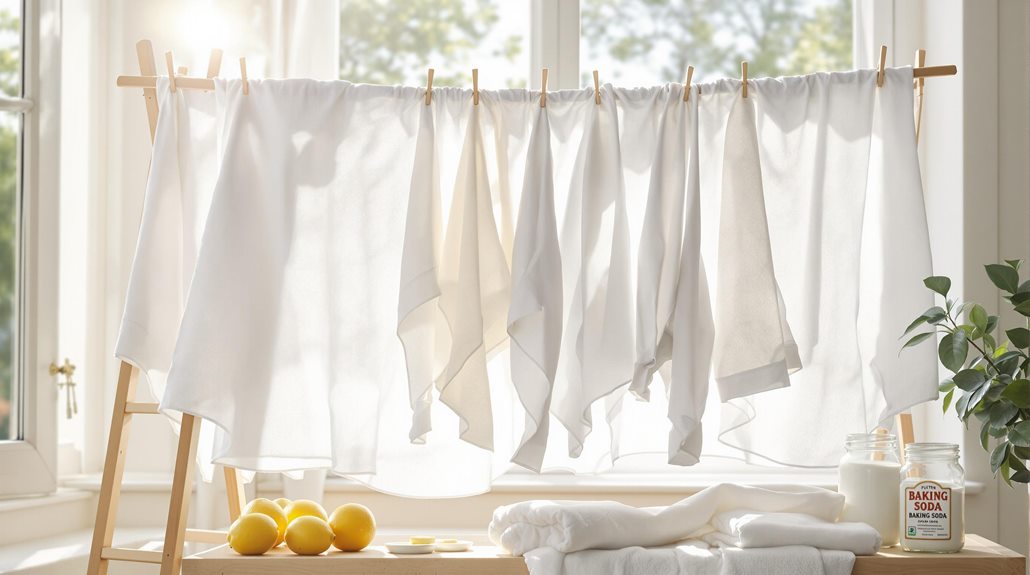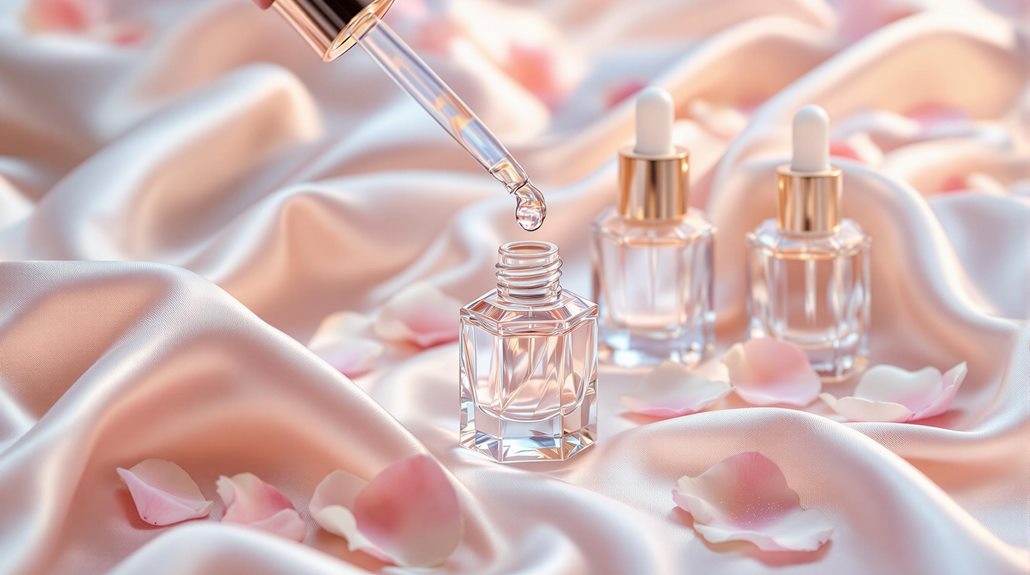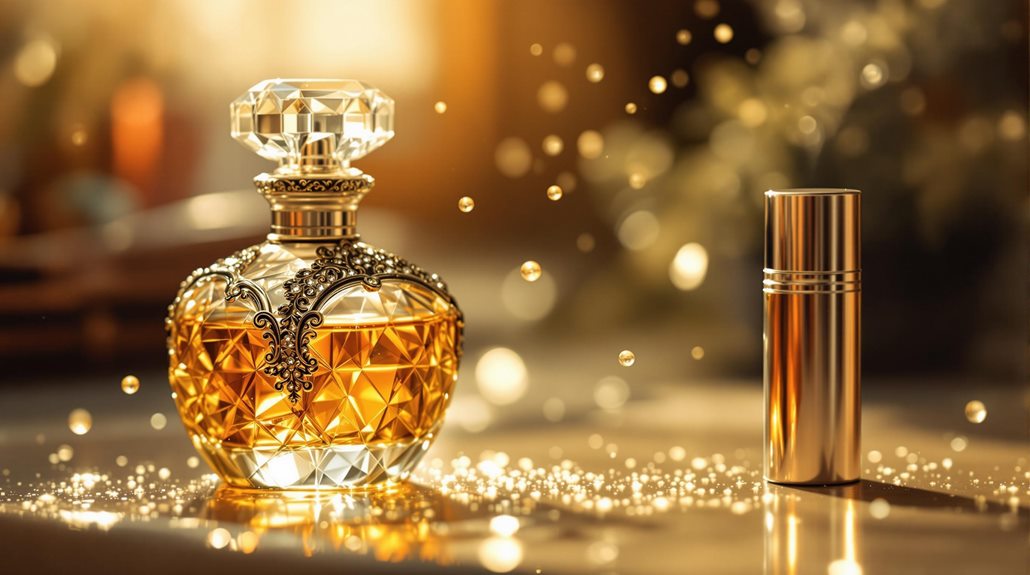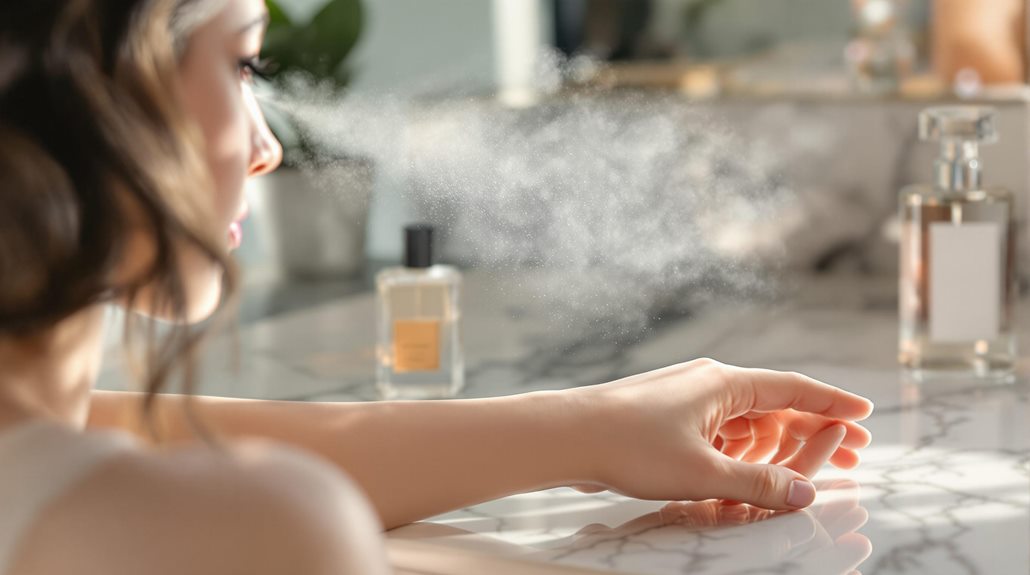How Long Does Perfume Last? Shelf Life, Skin Wear, and Tips to Prolong Scent
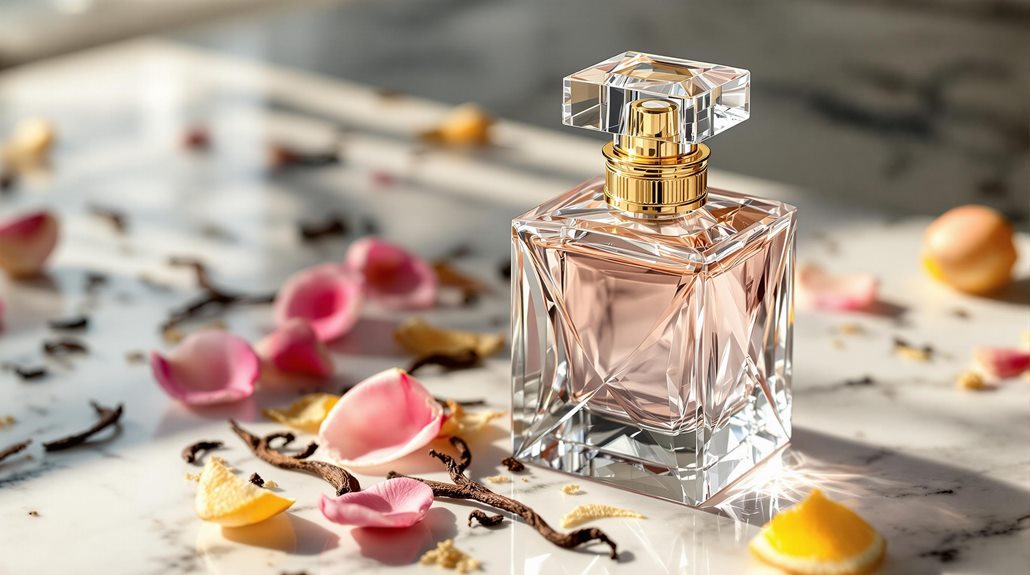
Most perfumes last 3-5 years when stored properly, but their actual longevity depends on storage conditions and ingredients. You'll get the best shelf life by keeping your fragrances in a cool, dark place away from sunlight and humidity, with temperatures between 55-70°F. On your skin, perfume wear time varies based on concentration - pure perfumes last longest, while eau de toilette fades faster. To extend wear time, apply to moisturized skin at pulse points and avoid rubbing wrists together. Watch for signs of expiration like color changes or altered scents. There's much more to learn about making your favorite fragrances last.
Understanding Perfume Shelf Life
Nearly every perfume enthusiast wonders about the lifespan of their favorite fragrances. Most perfumes tend to last between 3-5 years, though this timeline can vary depending on how you store perfume and the specific ingredients in your scent. Understanding your fragrance's shelf life is vital for maintaining its quality and ensuring you're getting the most from your investment.
Your perfume bottles are sensitive to environmental factors that can significantly impact their longevity. Direct sunlight, fluctuating temperature and humidity, and exposure to air can all degrade your fragrance faster than normal. To extend the life of your perfumes, you'll want to keep them in a cool, dry place away from windows and heat sources. While many perfumes don't come with an expiry date, you can spot signs of deterioration by watching for changes in color, scent intensity, or liquid volume.
The composition of your fragrance also plays a role in its durability. Some ingredients naturally last longer than others, which is why it's important to pay attention to how your specific perfumes evolve over time. By properly storing and monitoring your fragrances, you can help maintain their intended scent profile for years to come.
Signs of Expired Fragrance
Recognizing when your perfume has expired can save you from applying a fragrance that's no longer at its best. When fragrances expire, several noticeable changes occur that signal it's time to replace your bottle.
You'll want to watch for visual cues that indicate your Perfume has gone bad. If you notice the liquid's color changing - particularly darkening or yellowing - this suggests the fragrance molecules have started to alter. Similarly, if you spot any separation or cloudiness in the solution, your perfume has likely expired.
Pay attention to how your perfumes smell different from their original scent. If you detect metallic, vinegary, or any unpleasant odors, it's a clear sign the fragrance has degraded. A complete loss of scent or significant changes in the fragrance profile also indicates expiration.
To help your fragrances last longer, Store Your Fragrances properly. Keep Perfumes in Their Original bottles and shield them from light, heat, and humidity. Also, check the volume level in your bottles regularly - significant decreases may indicate excessive evaporation, which can affect the fragrance's quality and longevity.
Proper Storage Methods
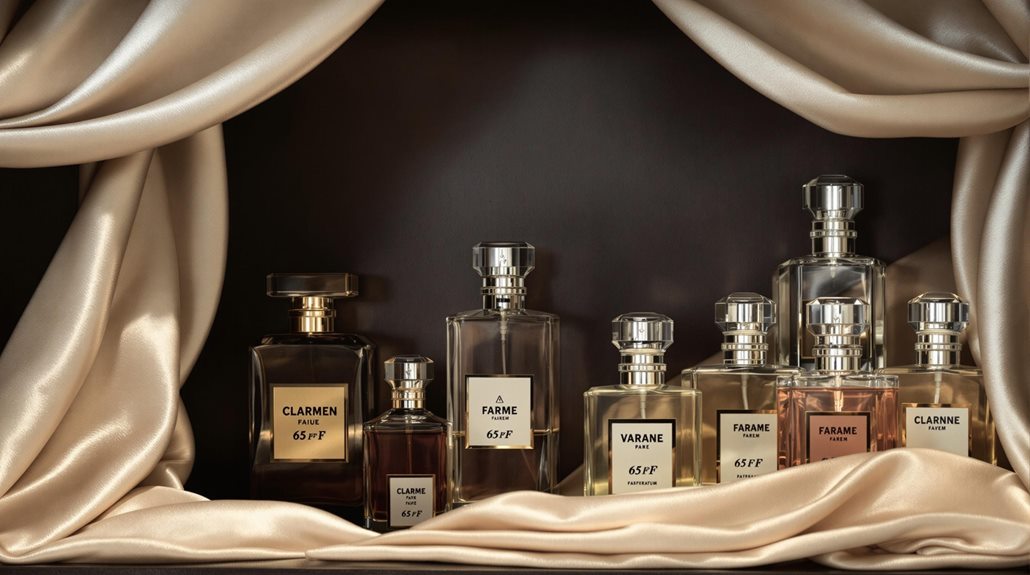
Protecting your perfume through proper storage methods can dramatically extend its lifespan and preserve its intended fragrance. To maintain your perfume's quality, you'll want to store perfumes in a cool, dark place like a drawer, closet, or cabinet. Keep your perfume bottle away from direct sunlight and heat sources, as these can break down the fragrance compounds and alter the scent.
You'll also want to avoid storing your perfumes in bathrooms, where fluctuating temperatures can cause chemical changes in the formula. High humidity in these spaces can also impact the fragrance's integrity. Instead, keep your perfumes in their original bottles and store them in a bedroom or dressing area where the temperature remains consistent.
The ideal storage temperature ranges between 55-70°F (13-21°C). Don't place bottles on windowsills or near radiators, as extreme temperatures can affect both the scent and the bottle's contents. Remember to always keep the cap tightly sealed when not in use, as exposure to air can oxidize the fragrance and diminish its quality over time.
Maximizing Fragrance Longevity
While proper storage preserves your perfume in the bottle, smart application techniques help maximize its wear time on your skin. To extend your scent's longevity, apply it to your pulse points where body heat naturally intensifies the fragrance - including wrists, neck, behind ears, and inner elbows.
Moisturize your skin before applying perfume, as fragrance lasts longer on hydrated skin. You'll also want to layer your scents by using matching body lotions or oils from the same fragrance line. The concentrated fragrance oils in these products help anchor the scent and make it last throughout the day.
Don't rub your wrists together after applying perfume, as this breaks down the molecules and weakens the scent. Instead, let it dry naturally. Consider using atomizers for precise application and to prevent oxidation from frequent bottle opening.
Beyond proper storage and application, you can maximize your perfume's shelf life by checking expiration dates and watching for changes in color or smell. If you notice your scent isn't lasting as long as it used to, it might be time to replace it with a fresh bottle.
Different Fragrance Concentration Types
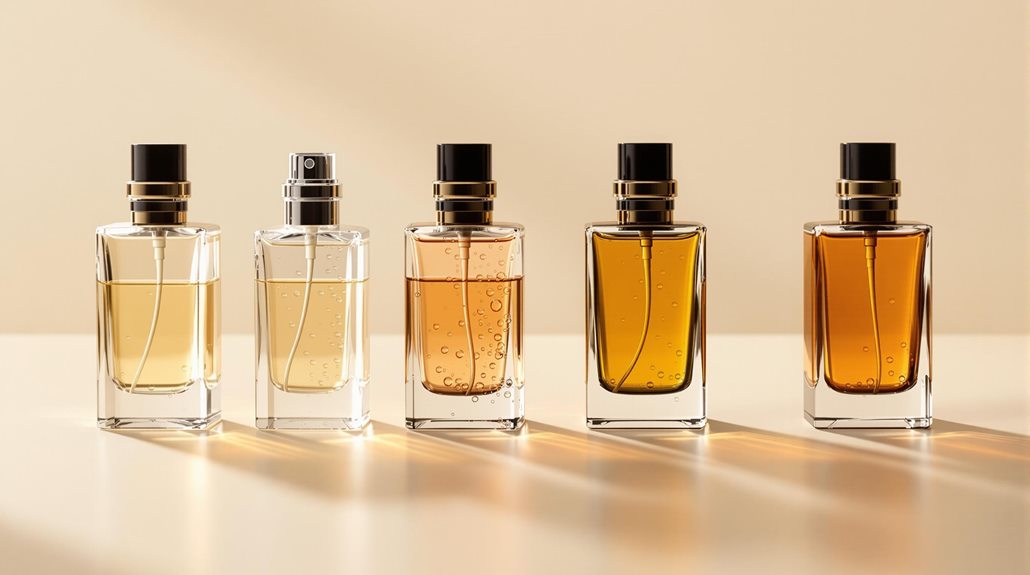
When shopping for fragrances, you'll encounter several concentration types that directly impact how long the scent lasts on your skin. Each type contains different levels of concentrate mixed with alcohol, determining its longevity and intensity.
Perfumes offer the highest fragrance concentration, ranging from 10-25%, making them the most potent and long-lasting option. Eau de parfum follows with 5-10% concentration, providing a balanced mix that's both noticeable and enduring. Eau de toilette contains 2-5% concentrate and offers a lighter scent that's perfect for daily wear. Despite common belief, eau de cologne shares the same concentration as eau de toilette at 2-5%, while eau fraiche has the lowest at 1-3%, making it the most subtle and shortest-lasting option.
You'll find that many modern fragrances use synthetic compounds in their bottle formulations. These synthetic ingredients tend to have better shelf stability and last longer on your skin compared to natural alternatives. When you're looking for a fragrance that'll stay with you throughout the day, choosing higher concentrate options like perfumes or eau de parfum will give you the most lasting impact.
Conclusion
Your perfume's lifespan depends on proper care and storage. Keep your fragrances in a cool, dark place away from direct sunlight and heat to maintain their quality for 3-5 years. Choose higher concentration formulas like parfum or eau de parfum for longer-lasting scents. By following smart storage practices and application techniques, you'll get the most out of your favorite fragrances and enjoy them for years to come.

